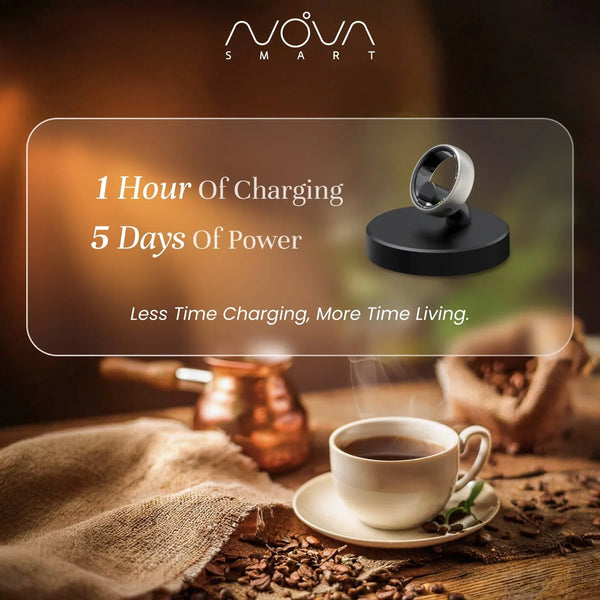Nova Smart Ring: From Launch to a Record-Breaking Success!
Within just three days of launch on Kickstarter, on July 20, we hit 100% of our funding goal! The...

You probably already know that sleep is important. But what many people don’t realize is just how deeply poor sleep can affect you emotionally and mentally. When poor sleep becomes the norm, you might start feeling more anxious, lose focus, and find everyday stress harder to handle.
The connection goes both ways. When you’re anxious or depressed, sleep often gets disrupted. But the reverse is also true: poor sleep can cause or worsen symptoms of anxiety and depression. It turns into a loop.
It’s not always about getting too few hours. Poor sleep can include:
● Waking up multiple times
● Feeling groggy despite sleeping long enough
● Low amounts of deep or REM sleep
● Inconsistent sleep and wake times
Even one or two nights of poor-quality sleep can change how you feel and think. Common signs include feeling more irritable, finding it harder to handle small challenges, and having focus that slips, hurting your productivity.
Sleep is one of the strongest features of smart rings. They gather continuous data while you sleep, giving you a clear picture of how well your body is recovering. Smart rings pick up on things like:
● Heart rate variability (HRV)
● Resting heart rate
● Sleep cycles and stages
● Skin temperature and recovery indicators
Seeing patterns that were invisible before is the real value. This is how smart rings are revolutionizing health tracking.
The more rested you are, the more resilient you feel. Your emotions feel less overwhelming, and your focus improves. When users see consistent sleep data from smart rings, it’s often the nudge they need to treat their sleep with more care and improve their overall quality of life.